Tattooing is an ever-growing form of body art and self-expression, and the process requires proper care to both speed up healing time as well as prevent infection. As part of a tattoo aftercare regimen, certain topical products can help nourish skin and allow tattoos to age well. One such product that often comes up in conversations about tattoo aftercare is CeraVe: specifically formulated with ceramides that soothe skin irritation while also providing essential moisturization. But does this particular product really stand up when it comes to caring for new tattoos? We’ll cover all things CeraVe: from the basics of why it works so well to how you should be using it—so jump right in if you’re curious about whether or not this popular brand could be just what your ink needs!
What is a Tattoo?
A tattoo is a form of body modification where ink is inserted into the skin through needles, leaving behind a permanent design. Tattooing has been practiced since ancient times and can be used to express different meanings or as a form of self-expression. When considering getting a tattoo, it’s important to think about the aftercare required for your new artwork to heal properly and last for years to come. CeraVe moisturizers have become popular in recent years due to their ability to help nourish and protect the skin while reducing inflammation and promoting healing.
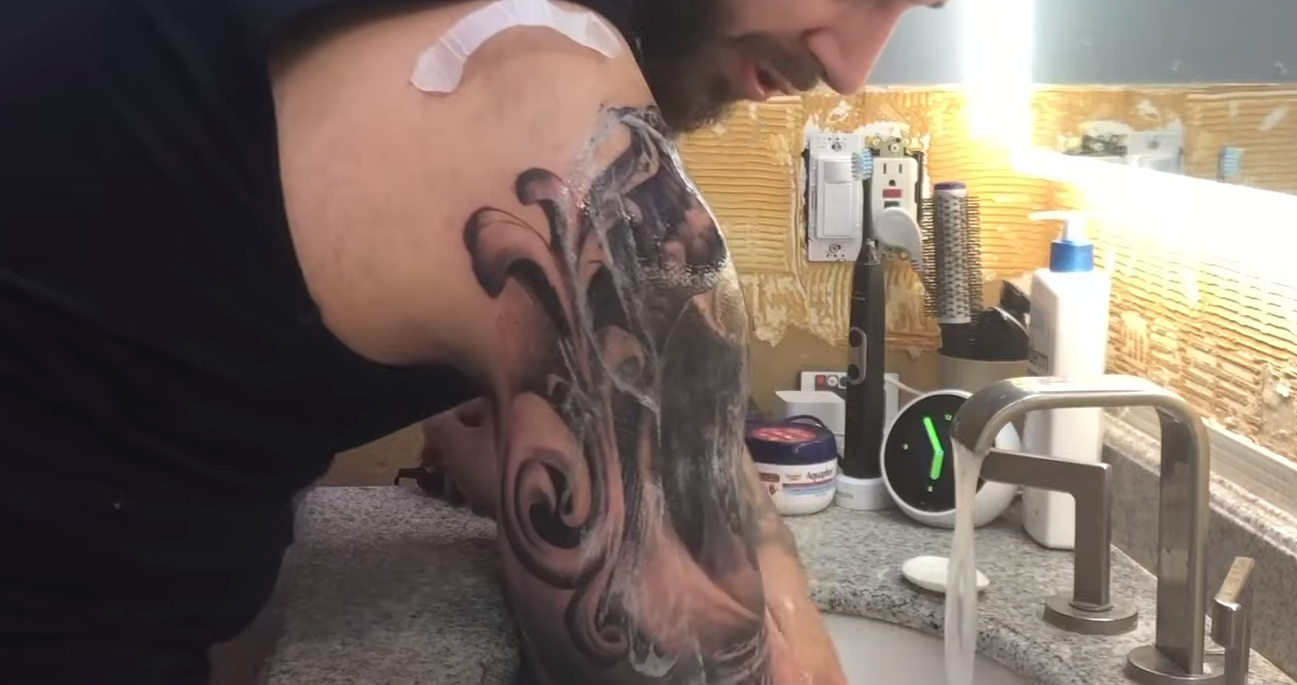
Different Types of Tattoos
Tattoos come in a variety of styles and types. Some popular tattoo styles include fine line, watercolor, neo traditional, new school, lettering or script, blackwork, and Japanese-style tattoos. Each style of tattoo has unique characteristics that determine which products work best for healing. When considering whether CeraVe is good for your specific type of tattoo, it’s important to understand the basics surrounding each style of tattoo and what you can do to protect them during the healing process.
Fine line tattoos are known for their delicate lines and minimalistic designs; they typically use a smaller needle than other types of tattoos and may take longer to heal due to their complexity.
Watercolor tattoos require bright, vibrant colors and often use a larger needle; due to the complexity of these tattoos, they may also take longer to heal. [1]
Neo-traditional tattoos are characterized by bold lines and bright shades, while new school tattoos feature more cartoon-like elements that require softer tones.
Lettering or script tattoos involve intricate lettering in various fonts, and blackwork tattoos typically consist of solid black ink for an edgier look.
Lastly, Japanese-style tattoos often have very detailed line work with rich colors that require even healing times for their desired result. With the wide range of tattoo styles available today, it’s important to understand what type of tattoo you have in order to determine which product is best for your specific needs.
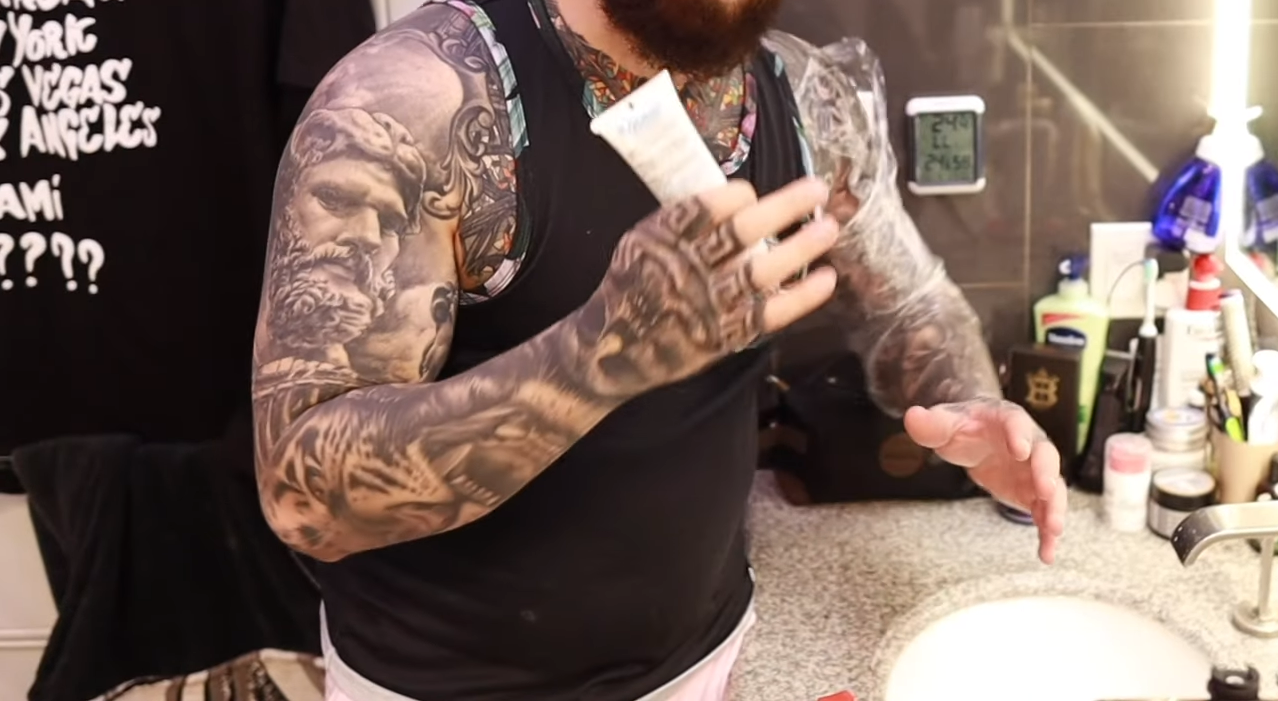
Factors to Consider Before Getting a Tattoo
Tattoos can be a great way to express yourself and commemorate special moments in your life. But before you take the plunge, there are some important factors to consider.
- Location: Where will you put the tattoo? A highly visible area like your arm or face may not be the best option if you’re considering a more personal design since it could draw unwanted attention. On the other hand, if you want something that’s more public and easily seen, these areas may be better choices.
- Skin care: The health of your skin is paramount when getting a tattoo. Using products that contain ceramides can help ensure that your skin stays healthy before and after getting inked, making them an ideal choice for tattoos. CeraVe is a popular skincare line that contains ceramides, and can be used to help keep your tattoo looking its best.
- Design: When selecting a design, it’s important to choose something meaningful that you’ll still love in the long run. Consider colors carefully; lighter ones may fade over time while darker colors will last longer. Have an artist create a custom design if possible, and look through their portfolio for ideas before committing to anything. [2]
- Pain tolerance: Tattoos can be quite painful depending on where they’re placed and the size of the ink being used. Be honest with yourself about how much pain you are willing to endure when choosing where and what type of design to get.
- Aftercare: Proper aftercare is critical for the success of your tattoo, and should be taken into account when deciding whether or not to go through with the procedure. Ask your artist about their recommended protocols before getting inked so you know what steps to take afterwards to promote healing and prevent infection.
Ultimately, it comes down to understanding the risks associated with tattoos and taking all necessary precautions beforehand. With proper research and preparation, you can ensure that you make an informed decision that’s right for you.
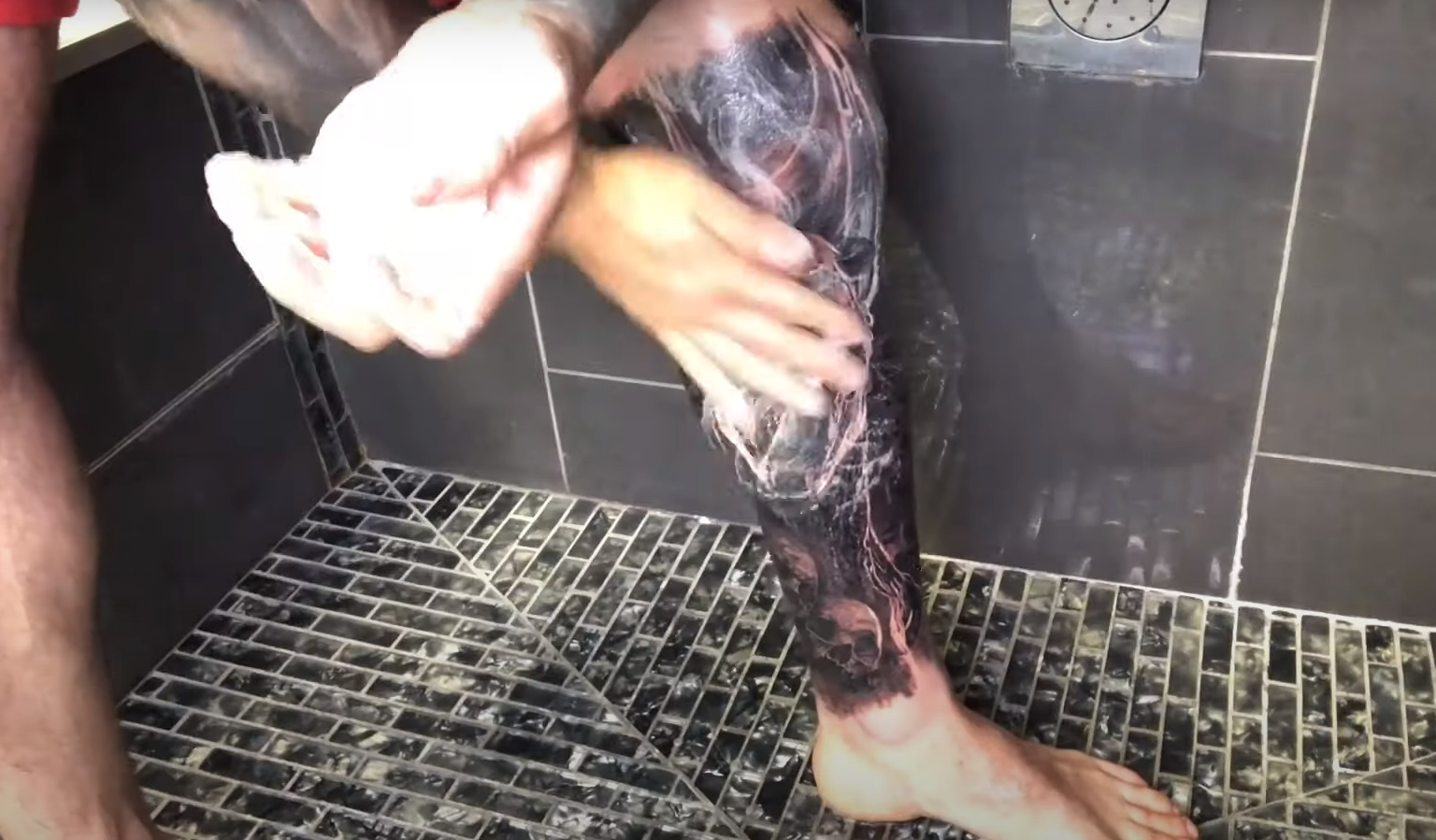
The Process of Getting a Tattoo
Getting a tattoo is an exciting and permanent decision that requires planning, research, and safety precautions. Before getting inked, it’s important to consider the design you want carefully – as well as the type of ink, needles, and equipment used. Additionally, proper skin care should be taken before and after the procedure for optimal results.
The next step is to take special care of your skin before the procedure to avoid any complications. This means avoiding sun exposure and exfoliating products, as well as moisturizing regularly with a broad-spectrum SPF 30 sunscreen and/or CeraVe Moisturizing Cream or Lotion. These products are designed to bring back moisture into the skin without irritating it – which helps with the healing process post-procedure. Keep in mind that if you’re on antibiotics or antacids, these can affect how your body heals, so be sure to tell your tattoo artist beforehand.
Finally, keep your immune system strong by eating healthy foods and drinking plenty of water!
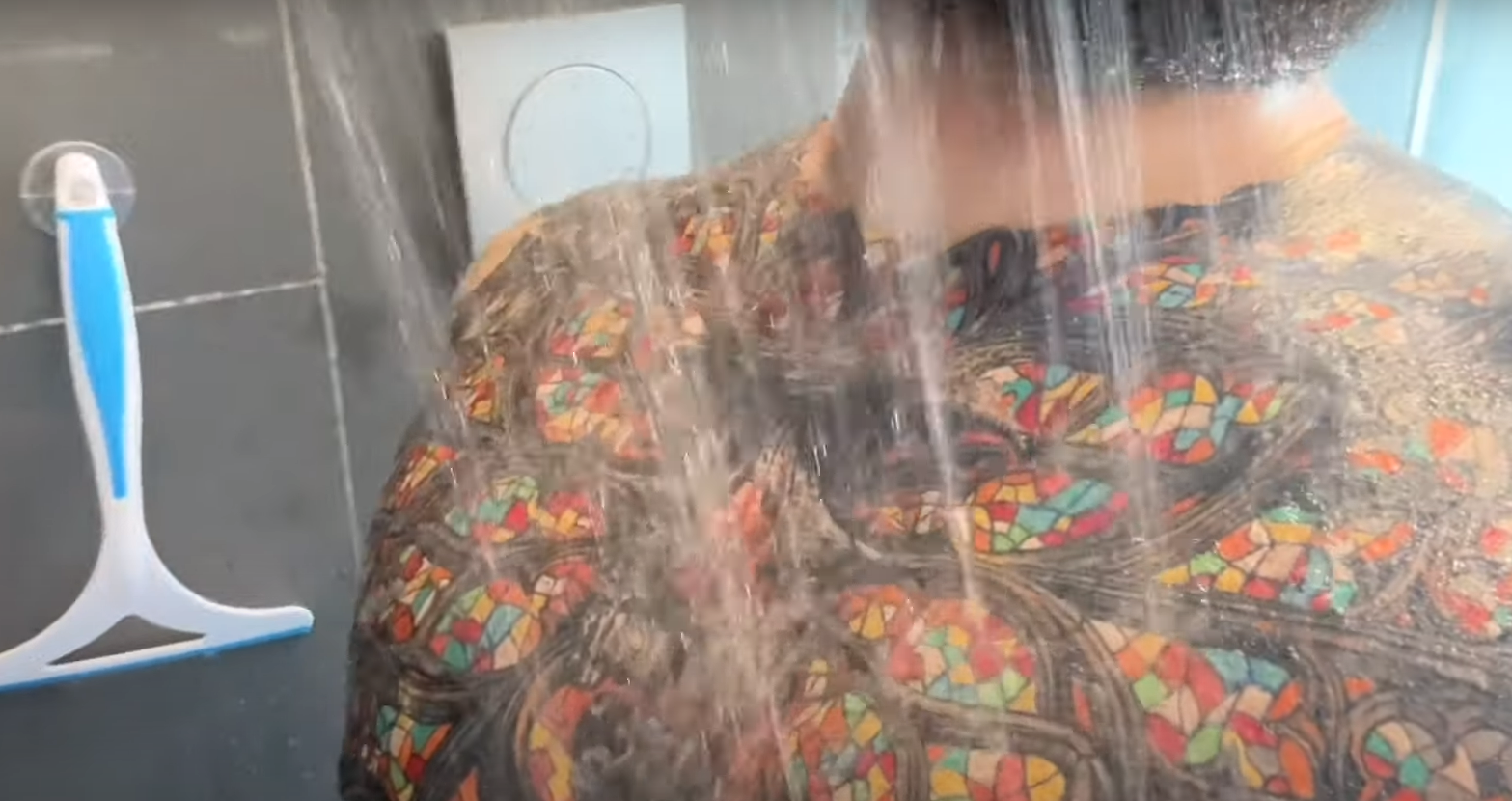
Is CeraVe Good For Your New Tattoo?
CeraVe is an excellent lotion for tattoo care. It has many of the features that make it suitable for use on a new tattoo: its oil-free and non-comedogenic formula helps to reduce itching and irritation while restoring moisture to the skin; its hyaluronic acid helps to soothe skin, including irritated skin around a fresh tattoo; and its combination of ceramides 1, 3 and 6-II helps to strengthen the protective barrier of your skin. [3]
If you’ve just got a new tattoo, CeraVe can be a great option for taking care of your ink. It will help soothe the surrounding skin and provide moisture while protecting the newly formed artwork from environmental damage. To get the most out of this product, make sure to apply it generously on the affected area at least twice daily. With proper care, your tattoo should remain vibrant and healthy for years to come!
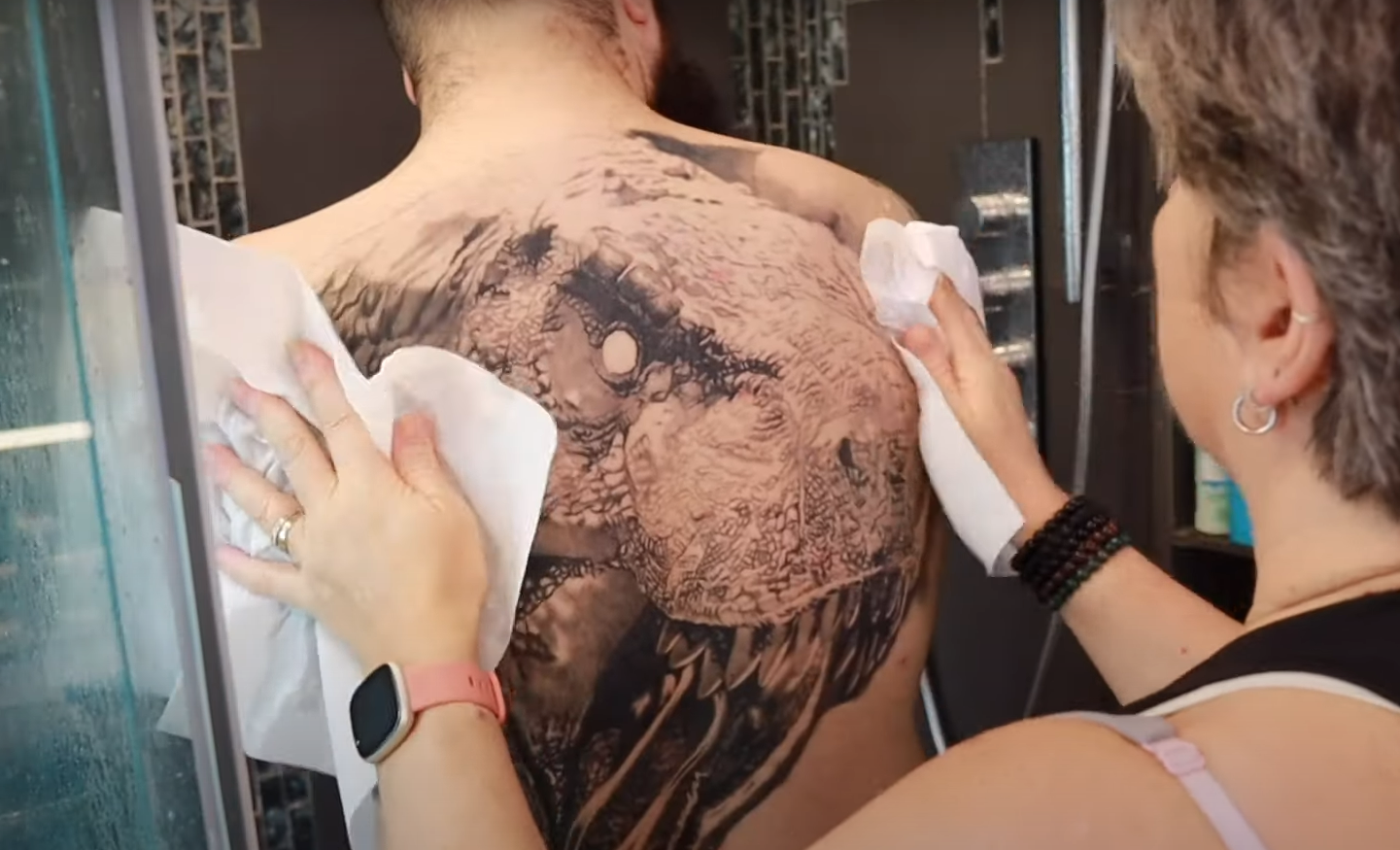
Benefits of CeraVe for New Tattoos
CeraVe is a great choice for aftercare of new tattoos. It has several benefits that make it particularly effective at promoting healing and keeping a tattoo healthy for years to come. This moisturizer contains ceramides, which are natural lipids found in the skin’s outer layer. These help to restore and maintain the skin’s protective barrier, helping to lock in moisture while preventing irritation and infection.
Finally, CeraVe is non-comedogenic (it won’t clog pores), fragrance free and non-irritating—important for a sensitive area like a tattoo. Its gentle yet effective formula is suitable for all skin types.
Disadvantages of Using CeraVe on Your New Tattoo
While CeraVe can provide helpful healing and hydration benefits to a fresh tattoo, it is important to be aware of the potential drawbacks. The most notable of these is that using CeraVe on your new tattoo may make color fading more likely. This is because CeraVe isn’t specifically designed for use with tattoos and lacks the ingredients that specialized aftercare products have been formulated to contain in order to slow down the natural fading process.
Additionally, some people may find that CeraVe feels greasy or sticky on their skin, which can lead to general discomfort as well as an increased risk of infection. Therefore, it is always best practice to consult with a professional artist about what type of ointment they recommend for your particular tattoo. [4]
Finally, although CeraVe is generally considered safe to use on tattoos, it may contain ingredients that cause irritation for some people with especially sensitive skin. While this is rare, if you notice any redness, burning, itching or other signs of irritation after using a CeraVe product on your new tattoo, stop using it immediately and consult with a medical professional for advice about how best to care for your healing ink.
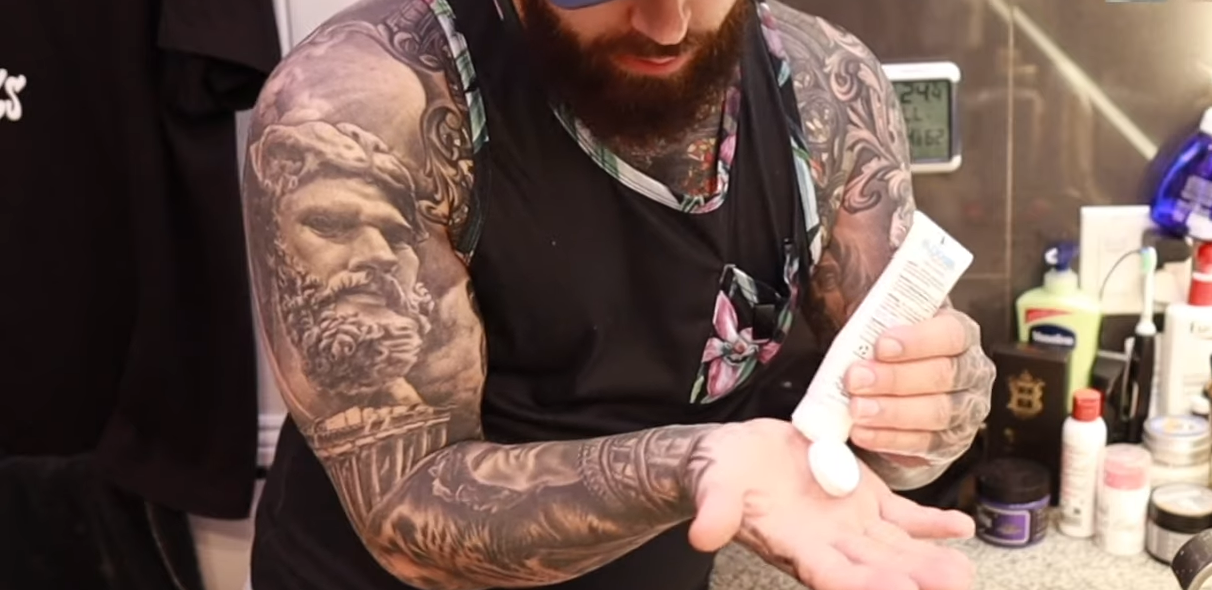
Other Aftercare Products for Healing Your Tattoo Quickly and Safely
Aside from CeraVe, there are other aftercare products available to help with healing your tattoo quickly and safely. A good tattoo aftercare routine includes cleansing, moisturizing, and protecting the area during the healing process.
Cleansing solutions or washes can be used on tattoos that contain ingredients like witch hazel and aloe vera to soothe and cleanse the skin. These solutions should be used several times a day for best results.
Protecting your tattoo is essential during the healing process. Sunscreen should be applied to the area any time you are in direct sunlight, as UV rays can cause fading and damage to your tattoo over time. Additionally, wearing loose clothing over your tattoo can also help with protection from external irritants such as dirt and debris.
By adhering to a good aftercare routine, you can ensure that your tattoos heal quickly and safely without any unwanted side effects or complications. With the right products and care, you can have beautiful tattoos that last for years to come! [5]
Hacks for Keeping Your Tattoo Looking Fresh and Vibrant
If you have recently gotten a tattoo and are wondering if CeraVe is good for keeping it looking its best, the answer is yes! CeraVe is an excellent choice for keeping tattoos fresh and vibrant. Its gentle yet effective ingredients help to prevent drying out and fading of the ink, while also promoting healing. Here are some tips to get the most out of your product:
- Always use a clean cloth or sponge when applying CeraVe to your tattooed area. This will help ensure that no bacteria or dirt gets into the wound, which can cause infection.
- Moisturize as often as necessary during the healing process in order to keep your skin hydrated and supple. Allow at least 24 hours between moisturizing sessions to ensure that your skin has time to absorb the product.
- Try to keep your tattoo out of direct sunlight and away from chlorinated water, as these can both cause fading and discoloration. If you must expose it, make sure to apply a generous layer of CeraVe before doing so.
- Use a mild soap on the affected area when showering or bathing, as harsh cleansers or bar soaps can irritate recently inked skin.
- Consult with your tattoo artist for any questions or concerns about caring for your new art!
By following these simple steps, you should be able to maintain the vibrancy and beauty of your tattoo for years to come. CeraVe is an excellent choice for tattoo aftercare and can help keep your new art looking its best!
Dangers of Tattoo Removal and Alternatives
Tattoos are permanent and can be difficult to remove. Laser tattoo removal is the most popular method, but it can be dangerous and expensive. The lasers used for removing tattoos can also cause scarring, skin discoloration, or infection. Additionally, some individuals may experience inflammation or pain during and after the laser treatments.
Although CeraVe is a safe and effective alternative for fading tattoos over time, it is important to remember that tattoos are permanent. There are no guarantees that CeraVe will completely remove the tattoo, so individuals should weigh their options carefully before deciding on any form of tattoo removal. Ultimately, the best option for safely removing a tattoo depends on individual circumstances and preferences. It is wise to consult with a professional for more personalized advice. [6]
What Lotion To Avoid For Tattoos?
When it comes to tattoos, the type of lotion used can make a big difference in how your tattoo looks and feels. While CeraVe is generally considered a good choice for tattoos because it contains ceramides that help retain skin moisture, there are several types of lotions you should avoid when caring for your new tattoo.
The first type of lotion to avoid is one with ingredients like lanolin or mineral oil. These ingredients may create a film on top of the skin which can prevent oxygen from reaching the tattoo area, leading to slower healing and more pain during healing. Alcohol-based lotions (including hand sanitizer) should also be avoided as they can dry out the skin and cause irritation.
Finally, perfumed or scented lotions should also be avoided as the scent can cause an allergic reaction. If you experience any itching, burning, or other signs of an allergic reaction, discontinue use immediately and consult with your doctor if necessary.
FAQ
Is CeraVe lotion good for tattoos?
Yes, CeraVe lotion is suitable for use on tattoos. It contains ceramides, which help to hydrate and protect the skin while keeping it soft and supple. The product also contains hyaluronic acid, which helps to lock in moisture and keep your ink looking vibrant and fresh. In addition, its non-irritating formula won’t cause any discomfort when applying it to sensitive tattooed areas of the skin. As such, CeraVe lotion is a great choice for helping you keep your tattoo looking its best over time.
Is Aquaphor or CeraVe better for tattoos?
To answer this question, it’s important to consider how the two products differ. CeraVe is a moisturizing cream that contains three essential ceramides and hyaluronic acid. It also helps to protect the skin’s natural barrier while locking in moisture. Aquaphor, on the other hand, is an ointment that acts as a thick layer of protection for tattoos, helping to lock in color and minimize scabbing or flaking.When it comes to tattoo care, both CeraVe and Aquaphor are good options. CeraVe is more beneficial for healing newly-inked tattoos because its ingredients help to soothe irritation and reduce inflammation while promoting skin cell renewal. It can also help to keep tattoos hydrated. Meanwhile, Aquaphor is best used after the tattoo has healed to protect it from fading or scabbing.
Who should not use CeraVe?
It is important to note that CeraVe should not be used on fresh tattoos, as it can interfere with the healing process. It should also not be used by people who have extremely sensitive skin or allergic reactions to any of the ingredients in CeraVe products. Before using CeraVe for a tattoo, it’s best to consult with a doctor or dermatologist first. Additionally, caution should be exercised when using CeraVe over existing tattoos; those with easily irritated skin may choose to use an alternative product. Finally, CeraVe should never be used on broken skin or open wounds.
Is CeraVe unscented?
Yes, CeraVe products are unscented. This makes them suitable for those with sensitivity to fragrances or other additives. Additionally, all CeraVe products do not contain parabens or phthalates. As such, they can be used safely and without risk of irritation or allergic reaction. They are also non-comedogenic and safe for use on acne-prone skin.
Does CeraVe have SPF?
Most CeraVe products do not contain a sunscreen ingredient like zinc oxide; however, some of their moisturizers include an SPF rating between 15 and 30 depending on the product line. It is important to remember that no single product should be solely relied upon for sun protection; it’s best to combine CeraVe with a broad-spectrum sunscreen. Additionally, it is important to reapply regularly and avoid prolonged exposure when possible. In conclusion, CeraVe products can be safely used on tattoos after they have healed properly. However, caution should always be taken with any product used around sensitive skin or open wounds, so it’s best to consult with a doctor or dermatologist before using CeraVe for tattoo care.
Useful Video: How To Treat A NEW Tattoo: Step By Step AFTERCARE Guide To Get AMAZING HEALS
Conclusion
Overall, CeraVe can be beneficial to tattoo aftercare. It is non-comedogenic and fragrance-free, which prevents skin irritation and allergic reactions. The ceramides found in the CeraVe cream help to restore the natural protective barrier of the skin, while also retaining moisture. Additionally, it is lightweight and easy to apply. However, some people may find that their skin reacts differently to this product and they should consult their doctor before use if necessary. Ultimately, using CeraVe as part of your post-tattoo care routine can help keep your tattoo looking vibrant for years to come!
References
- https://thebeautybeeblog.com/is-cerave-good-for-tattoos/
- https://www.makeupmuddle.com/is-cerave-good-for-tattoos-honest-answer/
- https://inkinstructor.com/is-cerave-good-for-tattoos/
- https://tattooaim.com/cerave-good-for-tattoos/
- https://groomingswag.com/can-i-use-cerave-on-my-tattoo-explained/
- https://tidydex.com/cerave-lotion-for-tattoos/


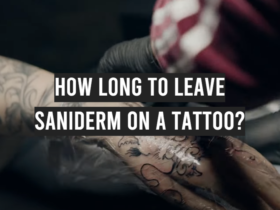


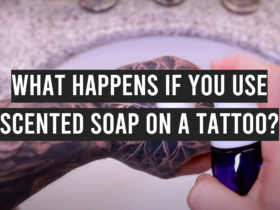
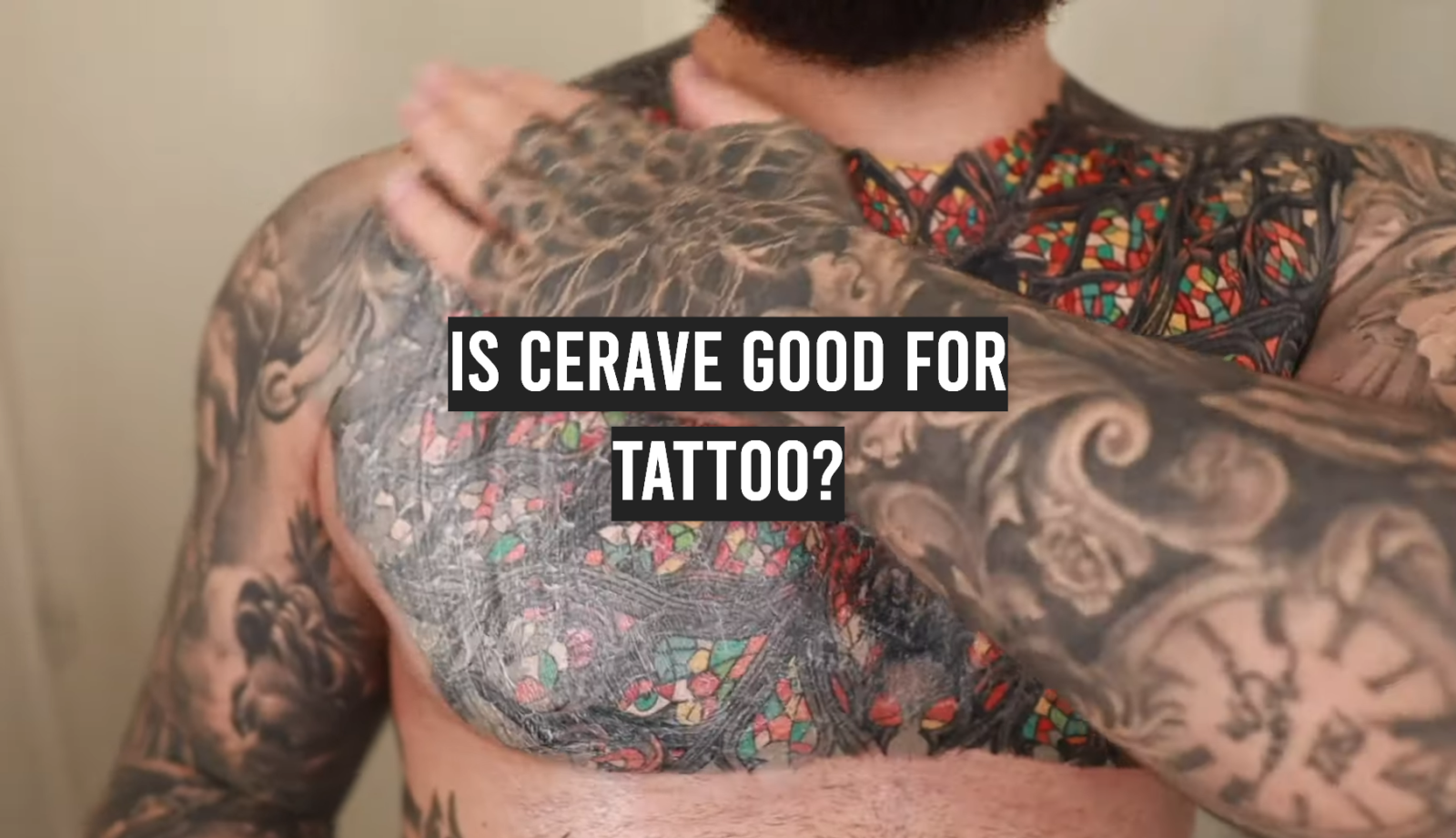
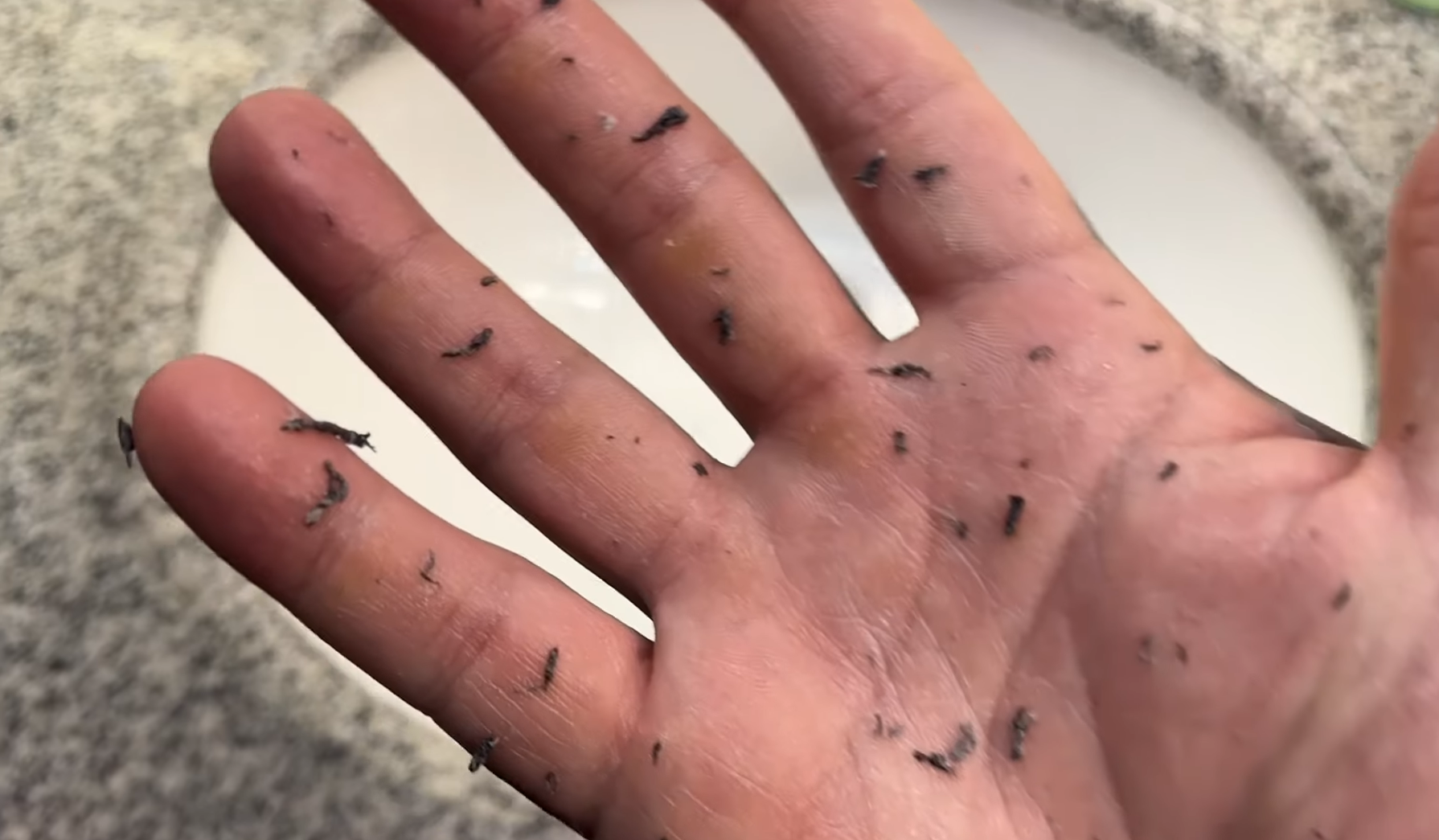
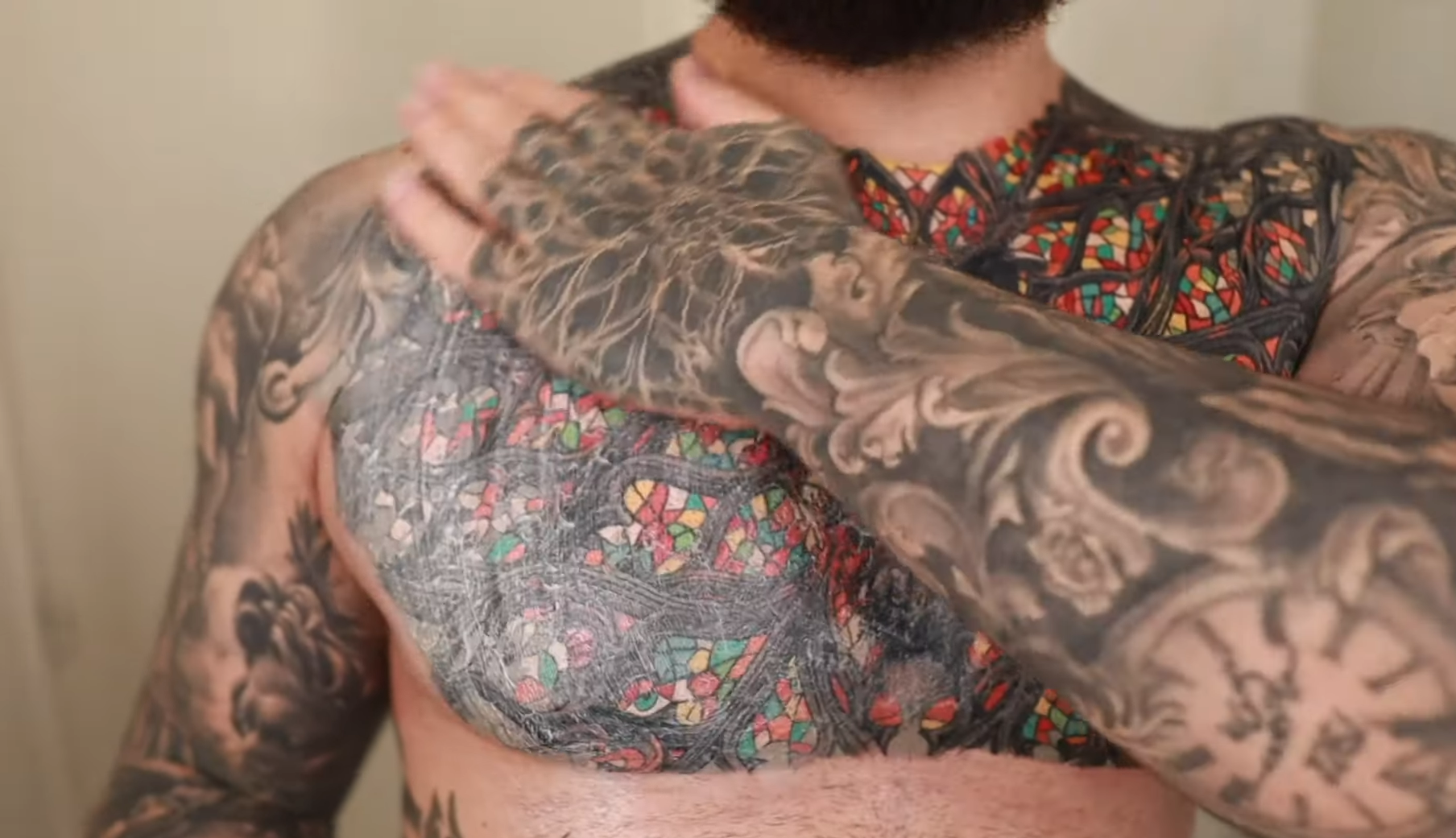




Leave a Review